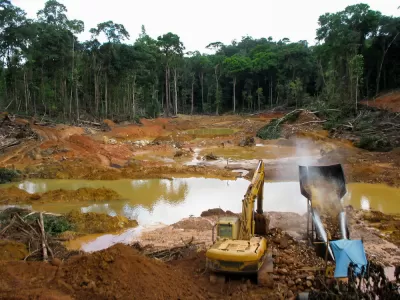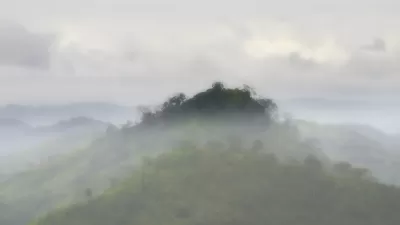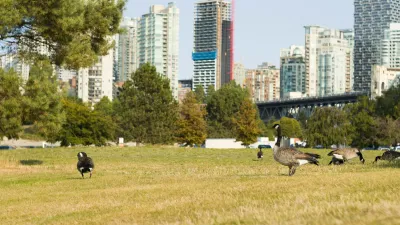A new study puts a number of the risk of land use to the planet's biodiversity.

"As many as 1,700 species are facing extinction in the next half-century, thanks to humans reshaping their natural habitats," reports Chase Purdy.
That news delivered in a study by Yale researchers published recently in the Nature Climate Change journal. The study lists species, including many that will be familiar to the layperson, according to Purdy: "monarch butterflies, red-crowned cranes, bearcats, and Siamese crocodiles—all of them threatened by the same, almost-certain doom."
The complicity spreads beyond the geographic reach of the extinctions: "even if some of the animals live in remote parts of the planet, people in the the [sic] developing world are still complicit in their demise. The demand for tropical hardwood floors, palm oil, and soybeans—among other things—fundamentally reshapes habitats so drastically that life for many of these animals becomes too tough to navigate."
FULL STORY: Human land use will likely drive 1,700 species to extinction

Planetizen Federal Action Tracker
A weekly monitor of how Trump’s orders and actions are impacting planners and planning in America.

Chicago’s Ghost Rails
Just beneath the surface of the modern city lie the remnants of its expansive early 20th-century streetcar system.

San Antonio and Austin are Fusing Into one Massive Megaregion
The region spanning the two central Texas cities is growing fast, posing challenges for local infrastructure and water supplies.

Since Zion's Shuttles Went Electric “The Smog is Gone”
Visitors to Zion National Park can enjoy the canyon via the nation’s first fully electric park shuttle system.

Trump Distributing DOT Safety Funds at 1/10 Rate of Biden
Funds for Safe Streets and other transportation safety and equity programs are being held up by administrative reviews and conflicts with the Trump administration’s priorities.

German Cities Subsidize Taxis for Women Amid Wave of Violence
Free or low-cost taxi rides can help women navigate cities more safely, but critics say the programs don't address the root causes of violence against women.
Urban Design for Planners 1: Software Tools
This six-course series explores essential urban design concepts using open source software and equips planners with the tools they need to participate fully in the urban design process.
Planning for Universal Design
Learn the tools for implementing Universal Design in planning regulations.
planning NEXT
Appalachian Highlands Housing Partners
Mpact (founded as Rail~Volution)
City of Camden Redevelopment Agency
City of Astoria
City of Portland
City of Laramie





























